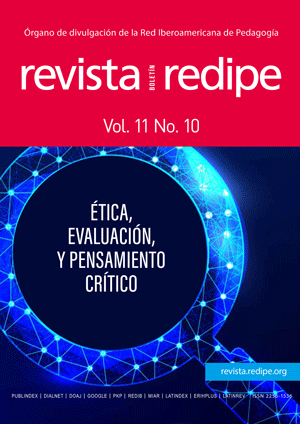Afflictive emotions in distance education in nursing students
Main Article Content
Keywords
Confinement, Distance education, Emotions, Procrastination
Abstract
Introduction: The educational conditions on the COVID-19 pandemic, motivated the realization of a study with quantitative approach directed to university students of Nursing and Nutritionology of the Autonomous University of Chihuahua. Objective: To analyze the manifestation of emotions, attitudes, and intentions of students in school activities at home. Method: cross-sectional - correlational study with quantitative approach. Was applied a questionnaire to a statistical sample of 466 nursing students of all semesters of their career. This application was by means of a digital form in google form. The information was analyzed by means of descriptive and inferential statistics; through various statistical analyses: descriptive, comparative, and correlational with a significance level of .001-005. The results highlighted that 97% of the students presented stress and 93% despair. The lack of satisfaction in distance education caused an increase in afflictive emotions, 60% showed a desire to abandon their studies and 94% a desire to return to face-to-face education; this was positively related to the desire to live with their classmates. In contrast, procrastination was shown as an effect of afflictive emotions. Conclusions: Dissatisfaction with distance or home-based education derives afflictive emotions as well as attitudes and intentions to drop out and return to school.
References
Camarillo JS., Morales AG., Rangel D y Urbina B G. (2021) Procrastinación y estrés académico en universitarios de educación en línea. Revista: PsicoEducativa: reflexiones y propuestas, 7(14), 28-41. https://psicoeducativa.iztacala.unam. mx/revista/index.php/rpsicoedu/article/ view/136/400
Giannini S (2020). Covid-19 y educación superior: De los efectos inmediatos al día después. Revista Latinoamericana de Educación Comparada: RELEC, 11(17), 1-57.
Morales I C H., Barrera YG., Veytia G G y González AD (2018). Las habilidades sociales y sus diferencias en estudiantes universitarios. VERTIENTES Revista Especializada en Ciencias de la Salud, 20(2), 22-29. https://www. medigraphic.com/cgi-bin/new/resumen. cgi?IDARTICULO=82569
Muvdi MY., Malvaceda FE., Barreto VM., Madero ZK., Mendoza SX y Bohórquez MC (2021). Estrés percibido en estudiantes de enfermería durante el confinamiento obligatorio por Covid-19. Revista Cuidarte, 12(2):e1330. http://dx.doi. org/10.15649/cuidarte.1330
Robles Mendoza, A. L., Junco Supa, J. E., & Martínez Pérez, V. M. (2021). Conflictos familiares y económicos en universitarios en confinamiento social por COVID-19. Revista CuidArte, 10(19).
Siegel S (1985). Estadística no paramétrica. México. Trillas. https://revistas. unam.mx/index.php/cuidarte/article/ view/78045
Schmelkes S (2020). La educación superior ante la pandemia de la COVID-19: el caso de México. Universidades, 71(86), 73-87, https://doi.org/10.36888/udual. universidades.2020.86.407
Velázquez LG (2020). Estrés académico en estudiantes universitarios asociado a la pandemia por COVID-19. Espacio I+ D, Innovación más desarrollo; 9(25). https://espacioimasd.unach.mx/index.php/ Inicio/article/view/249
Shokeen, A (2018). Procrastination, stress and academic achievement among the B. Ed. Students. Educational Quest-An International Journal of Education and Applied Social Sciences, 9(1), 125-129. http://www.indianjournals.com/ ijor.aspx?targ et=ijor:eq&volume= 9&issue=1&article=017
Veytia-Bucheli, M G y Sánchez-Macías A (2021). Procrastinación en internet en educación superior a distancia. RIIED; Vol. 1 (1), 7-19. https://riied.org/index. php/v1/article/view/3
UNESCO (2022). Interrupción y respuesta educativa.. https://es.unesco.org/ covid19/educationresponse.
Watts L. (2016). Synchronous and asynchronous communication in distance learning: A review of the literature. Quarterly Review of Distance Education, 17(1), 23-32. https://www.proquest.com/openview/f8 3c30d3f7e7d1cd69754d1fa52eaff5/1? pq-origsite=gscholar&cbl=29705



